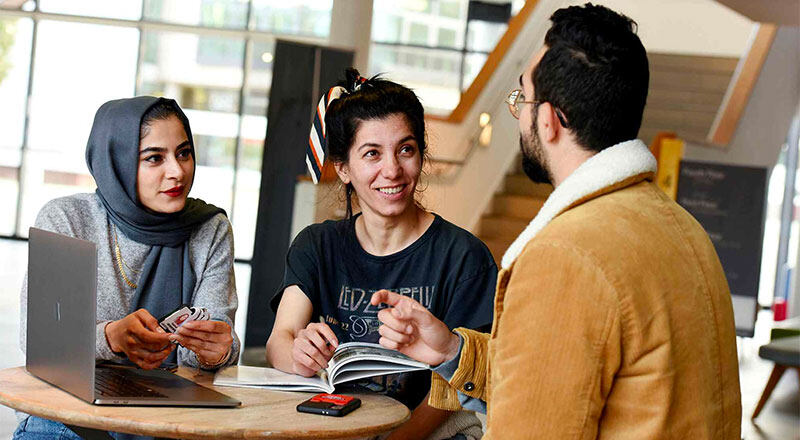Teesside University is one of a handful of higher education institutions to receive a share of £2 million of funding to develop a wide range of short courses which will provide even more flexible learning opportunities for students.


Twenty-two universities and colleges have been awarded a total of £2 million to develop short courses, designed to enable flexible learning and to help students develop skills needed by employers and the economy.
The funding comes from the Office for Students (OfS), who worked collaboratively with the Department for Education on the programme.
The Office for Students is the independent regulator for higher education in England. Its aim is to ensure that every student, whatever their background, has a fulfilling experience of higher education that enriches their lives and careers.
Teesside University’s successful bid will allow it to develop a total of 18 (40 credit) courses in digital innovation, net zero and sustainable engineering and healthcare.
The courses will run from the 2022-23 academic year and will see Teesside University work with a range of partners, including the North East England Chamber of Commerce, Animmersion, Siemens, Robert McAlpine, Northumbrian Water, VirtualArmour, North Tees and Hartlepool NHS Foundation Trust, Sofia Offshore Windfarm, Dave Casey Electrical Contractors and PD Ports.
Nicola Dandridge, Chief Executive of the OfS, said: “I am pleased to announce the successful bidders for these important courses. The courses cover a range of subjects at universities and colleges from all parts of the country.
“They will help people – including those who might already have significant work experience – learn new skills and retrain for a career change.
“THESE COURSES WILL HELP ADDRESS THE DEMAND FOR SKILLS IN DIGITAL INNOVATION, HEALTH SCIENCE AND NETZERO WITHIN THE REGION AND NATIONALLY.”
– Professor Chrisina Jayne
“This type of flexibility is important and will help employers fill skills gaps which are essential for their businesses and support future economic growth. At the same time students will be able to benefit from higher education for short periods of time, which will enable them to further their careers, as well as giving them the opportunity to go on and gain a full degree.”
The funding success for Teesside follows an announcement last month where Teesside was awarded a share of £294,000 from the OfS, in partnership with the government Department for Digital, Culture, Media and Sport (DCMS), to further develop courses around artificial intelligence and data science.
Professor Chrisina Jayne, Dean of Teesside University’s School of Computing, Engineering & Digital Technologies, said: “We are delighted to receive this funding to develop a wide range of new and innovative short courses.
“These courses will help address the demand for skills in digital innovation, health science and NetZero within the region and nationally. They will also provide even more flexibility and opportunities for students from a wide range of backgrounds to access higher education and further develop their skills, knowledge and careers.”


































